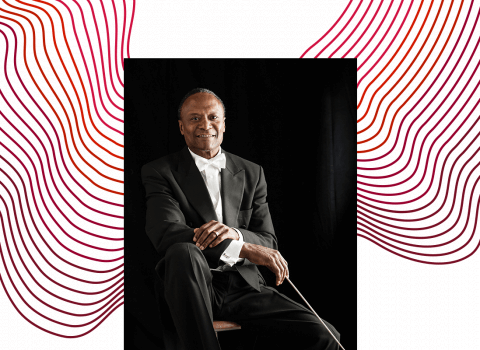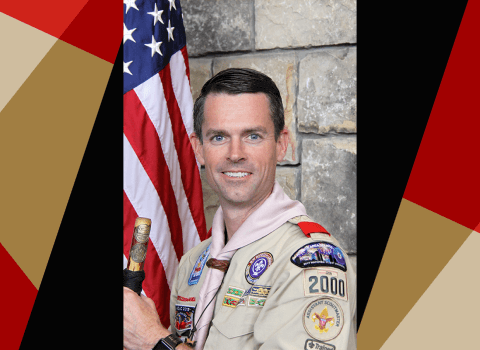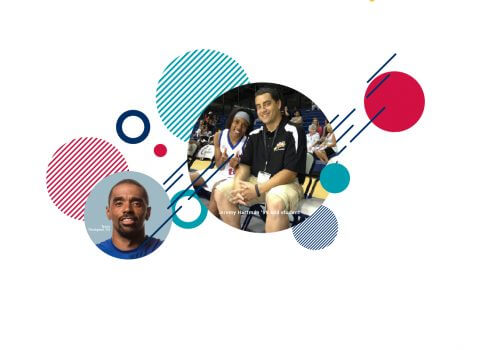Dixon is a police sergeant in the Baltimore Police Department (BPD) and has been with the force for nearly 20 years. Since the unrest in Baltimore over a year ago, Dixon and his partner, Police Sergeant Michael Jones, Sr., began a summer Youth Basketball League that attracts youths ages 7-17 in the inner city of Baltimore. The program aims to build relationships between the police and Baltimore residents.
 In addition to the basketball program, Dixon works with the BPD Bridge Program. The program provides mentorship and instills in youths six pillars of good character: being responsible, respectful, caring, fair, trustworthy and a good citizen. Through trips to local sporting events and other educational activities, the program offers youths new experiences, exposes them to positive role models, and encourages them to keep positive.
In addition to the basketball program, Dixon works with the BPD Bridge Program. The program provides mentorship and instills in youths six pillars of good character: being responsible, respectful, caring, fair, trustworthy and a good citizen. Through trips to local sporting events and other educational activities, the program offers youths new experiences, exposes them to positive role models, and encourages them to keep positive.
According to Dixon, “There are a lot of things going on for kids today, but one common ground is when you play a sport like basketball. With basketball, the diversity of different people -— older people, people of different races — all come together in a common goal and the common love of basketball. That’s just what I try to do.”
In a personal way, Dixon is very familiar with the struggles facing today’s youths. Both of his parents battled drug addiction and passed away due to AIDS. He lived with extended family members in a three-bedroom townhouse that housed 17 other people. Despite hardships, Dixon credits his grandparents with making an uncomfortable situation comfortable through the love and care they provided.
When Dixon looks at the kids in his basketball camp, he sees his younger self in them.
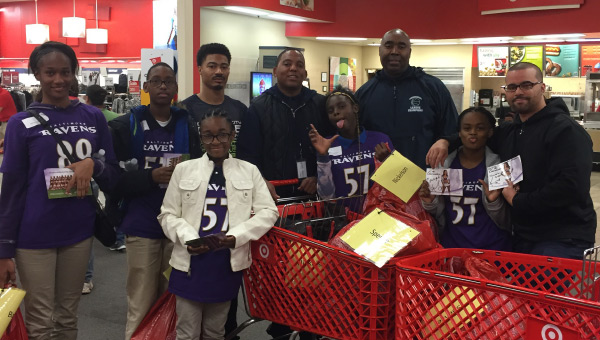
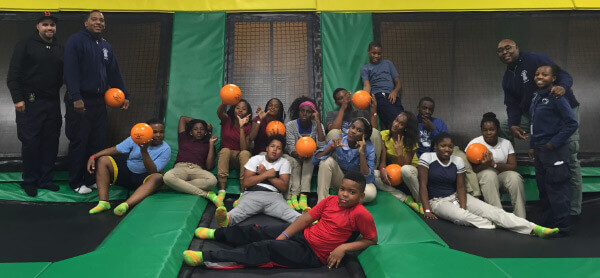
“There are a lot of things going on for kids today, but one common ground is when you play a sport like basketball. With basketball, the diversity of different people — older people, people of different races — all come together in a common goal and the common love of basketball. That’s just what I try to do.” – Phil Dixon ’96
“Basketball really played a big role in my life and my siblings’ lives, and that is something I try to pass onto the kids,” he said. “There is a ticket out of your situation, and you just have to figure out which one you will dial in: Are you going to play in the band? Are you going to play on the basketball team or football team, or are you going to do it academically? There is a ticket to be punched.” For Dixon, his ticket was playing basketball.
During his freshman year at Shenandoah, the men’s basketball team had a 9-16 record. By the time he graduated, the team flipped the wins and losses for a record of 18-9. Dixon, the team’s captain, not only holds Shenandoah’s record for top scorer, with over 2,200 points, but also the record for top assists with nearly 900 during his college career. He credits late basketball coach and Athletic Director Dave Dutton with teaching him to “play basketball the right way, in a team situation, instead of just looking at it from an individual standpoint.”
For Dixon, Dutton was more than just a basketball coach.
“Coach Dutton was great. He was like a father figure. He was a mentor. He was just a guy that filled in the gaps for what was missing in my life, personally. I really didn’t have my father around. So Coach Dutton was someone that, if you needed advice, you needed a hug, whatever, he was there for you.”
In 1992, Dutton said, “Dixon has accomplished a myriad of individual goals, while leading the men’s basketball program back to national prominence.” Today, Dixon is still accomplishing a myriad of individual goals, while inspiring young people from inner-city neighborhoods in Baltimore.


